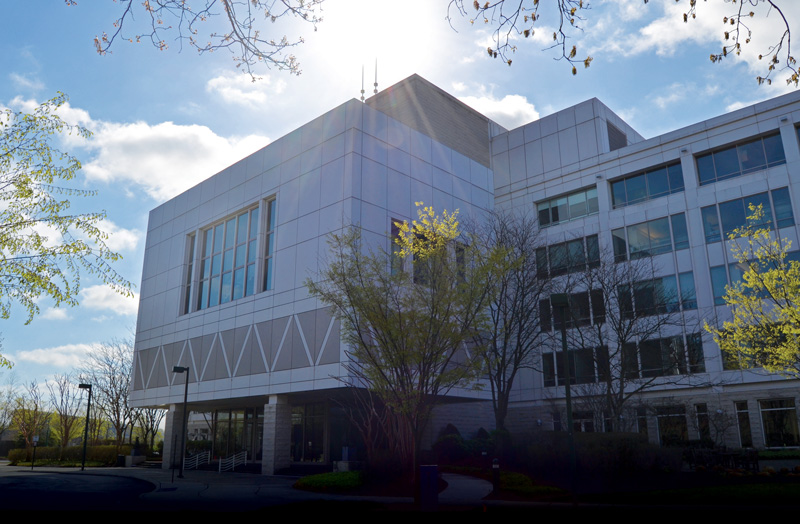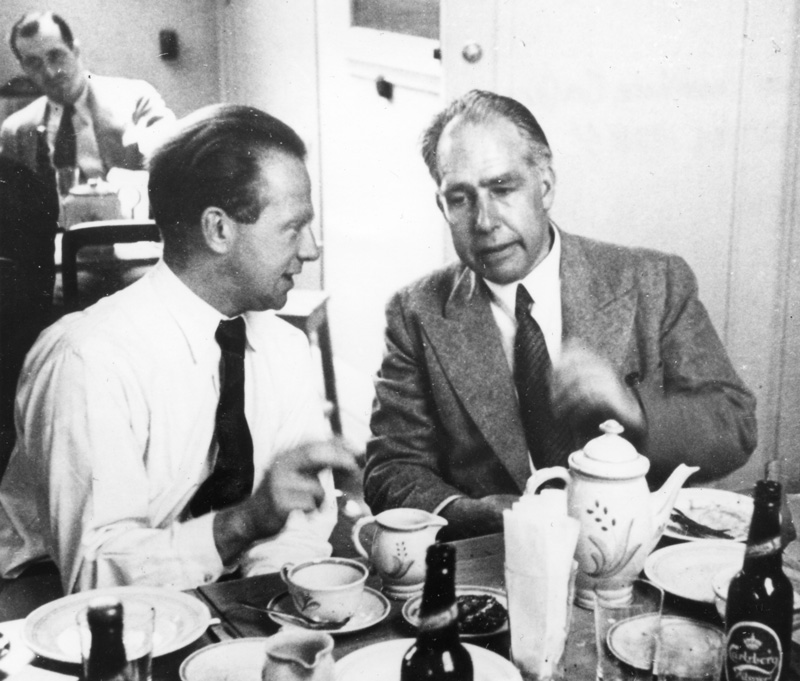Voices from the Past - The Niels Bohr Library & Archives Oral History Collection
Fall
2016
Connecting Worlds
Voices from the Past - The Niels Bohr Library & Archives Oral History Collection
The history of the American Institute of Physics
By:Amanda Nelson, Archivist, American Institute of Physics

For more than 50 years, the American Institute of Physics (AIP) Niels Bohr Library & Archives has worked to preserve the stories of outstanding physical scientists, many of them Sigma Pi Sigma and AIP Member Society members. From 2007 to 2013, with the help of two National Endowment for the Humanities grants, the library placed over 1,000 of the 1,500 oral history interview transcripts in our collection online (https://www.aip.org/history-programs/niels-bohr-library/oral-histories). This initiative made interviews with luminaries like Niels Bohr, Paul Dirac, Maria Goeppert Mayer, Richard Feynman, and hundreds of others globally available.
In 2015, we unveiled an updated web presence for our oral histories, with new features that make it easier than ever to browse and search the transcripts. Transcript pages now integrate with the rest of our history web pages, with easy access to our other collections and resources, and feature expandable tabs with background information about the transcript. The transcript pages also display key browsing functions, including institutions, subjects, and people mentioned in the interview, so users can easily find related interviews.
Additionally, we have over 80 audio excerpts available online. These two-to-three-minute highlights from the oral history interviews were chosen by historians of physics and graduate students because they describe not only the work of a particular physicist, but also the human side of the subject. They allow us to hear physicists discussing their collaborations with others or issues they had to overcome. One example can be seen on the following page from Werner Heisenberg’s interview with Joan Bromberg in June 1970, where Heisenberg discusses and compares the scientific styles of his three teachers, Arnold Sommerfeld, Max Born, and Niels Bohr.
Experience how history comes alive through the words of those who have dedicated their lives to advancing the physical sciences. We invite you to spend some time perusing this resource and hope that you find it useful and inspiring. For any questions or comments, please email nbl [at] aip.org.

Bromberg:
… Perhaps the last thing I would like to ask you are two things I mentioned I would like to ask about. I would like to, on the one hand, to understand something of the background of nuclear theory as against quantum electrodynamics and here ...
Heisenberg:
Oh yes, they were rather independent problems: quantum electrodynamics on the one hand, and nuclear physics on the other hand. I would say quantum electrodynamics, that was in the thirties a subject which was, I should say, almost too sophisticated for Niels Bohr. I mean, it was a subject which could be treated with very complicated mathematical methods, and it was not a problem in which you could do much with new concepts. And so Bohr...he listened to the talks of Dirac and also myself in the Copenhagen meetings, but Bohr was not too interested in those things. He wasn’t interested, for instance, in the theory of showers and the cascade theory of showers because that was such a definite phenomenon which you could see [in] the experiments. If I could put it that way, Bohr was interested in experimental situations, in phenomena, and he tried to get such a close view of all the phenomena, to acquire the phenomena in his mind so strongly that he could then form the right concepts to start for the explanation. But he would not be too interested in complicated mathematical analysis like it was necessary in quantum electrodynamics.
Bromberg:
But from your point of view, your work in nuclear theory seemed to be most closely connected with the work in quantum electrodynamics; it was connected with your concept of a particle...
Heisenberg:
Yes, I had always both these interests. I mean, I was always very happy to discuss things with Bohr because Bohr would always have to make the concepts clear. On the other hand, I was also interested in these mathematical problems of quantum electrodynamics because I felt that finally you must write down a mathematical scheme which explains things. I always looked, as a final aim, to the mathematical scheme. And that was not perhaps what Bohr did. Bohr looked to a scheme of concepts, a number of concepts, and not a mathematical scheme—if one wants to make such a strong distinction. After all, we have spoken so much forth and back, but still I would say there is a slight difference in tendency between Bohr and myself.
I tried to put it this way in a talk which I had to give after the death of Max Born. I compared my three teachers which I have had, that was Sommerfeld, and Max Born, and Niels Bohr. And I would say: Sommerfeld, he was most interested in solving problems which you could compare with experiments. He did not mind the concepts—I mean, the concepts somehow had to be all right, but he was not too much interested. And also he was not too much upset about contradictions, as in old quantum theory, there were contradictions. He wanted to do calculations and to get all correct results. And then there was Max Born, who believed strongly in the existence of rigorous mathematical schemes. He was very much a mathematician, but he was not a philosopher. He was interested...he always suggested that I must find the theory in quantum mechanics which replaces Newton’s mechanics, but he did not see that in order to do that you have to derive or to apply new concepts.
And, finally, Bohr, he was a philosopher who looked for the concepts. And he said, well, first we must have our concepts right—that means actually we have to make our mind clear, and before we can do that we have no chance, really, to solve the problems.
So, I don’t know whether I am clear enough to compare these three people.
